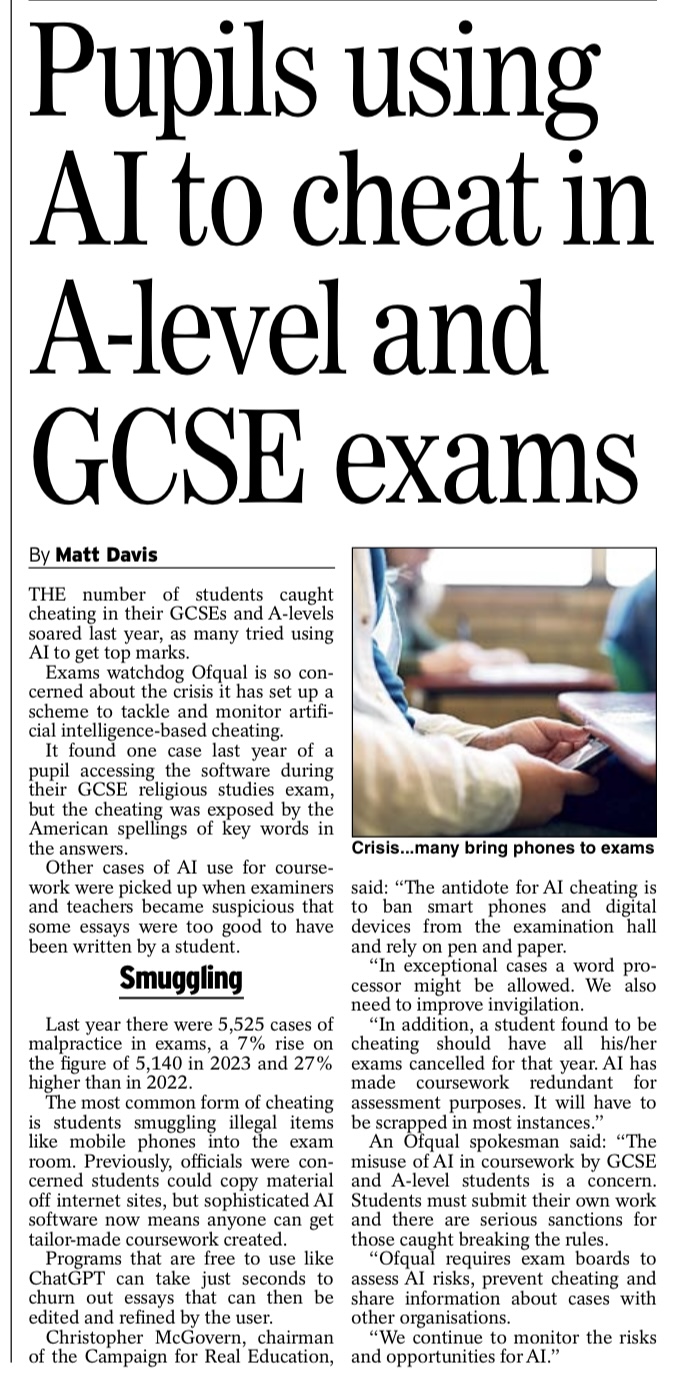Last year there were 5,525 cases of cheating uncovered while students were taking their GCSEs or A-levels. That’s a 7 percent rise on the year before. It’s also 27 percent higher than in 2022.
I got the figures through an annual report released by Ofqual after researching whether AI was actually being used in exams, or whether schools were just panicking because teenagers had started handing in homework with full stops and capital letters.
It turns out it’s already happening.
One GCSE student tried to use AI during a Religious Studies exam. They were caught when their answers included American spellings. The FoI didn’t say exactly what they wrote, but I like to imagine it was something like “Moses realized the Israelites needed organization” or “Jesus emphasized the importance of neighborliness”.
Other students used AI to help with coursework. Some were caught because the essays read like they’d been written by a 45-year-old management consultant. Others were flagged up for inconsistencies that hinted at copy-paste jobs from chatbots.
Phones are still the most common cheating tool. Hundreds of students were caught bringing them into exam halls. With free AI tools on mobile browsers, you no longer need a physics formula sheet in your sock. You just need phone data and a distracted invigilator.
Exams watchdog Ofqual is concerned enough that it’s set up a scheme to tackle and monitor AI-based cheating. A spokesperson told me: “Ofqual requires exam boards to assess AI risks, prevent cheating and share information about cases with other organisations. We continue to monitor the risks and opportunities for AI.”
Others want a more old-school approach. Christopher McGovern, chairman of the Campaign for Real Education, called for a ban on smartphones and digital devices in exam halls and a return to pen and paper. “In exceptional cases a word processor might be allowed,” he said. “We also need to improve invigilation.
“In addition, a student found to be cheating should have all his or her exams cancelled for that year. AI has made coursework redundant for assessment purposes. It will have to be scrapped in most instances.”
The story ran in The Daily Express, The Mirror and The Daily Star on 15 April. Cheating in school isn’t new, but AI makes it feel different: faster, smarter and harder to spot. Until someone spells “baptize” with a z.

At DataNews, we turn FOI scoops and public data into impactful stories.
If you’re planning a data-led campaign and want it to land well, we’re here to help.


